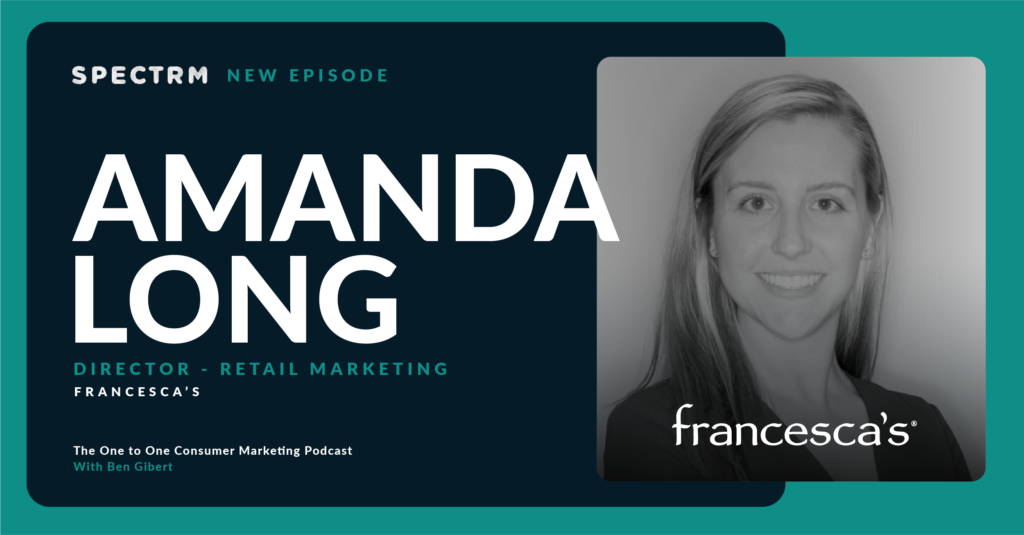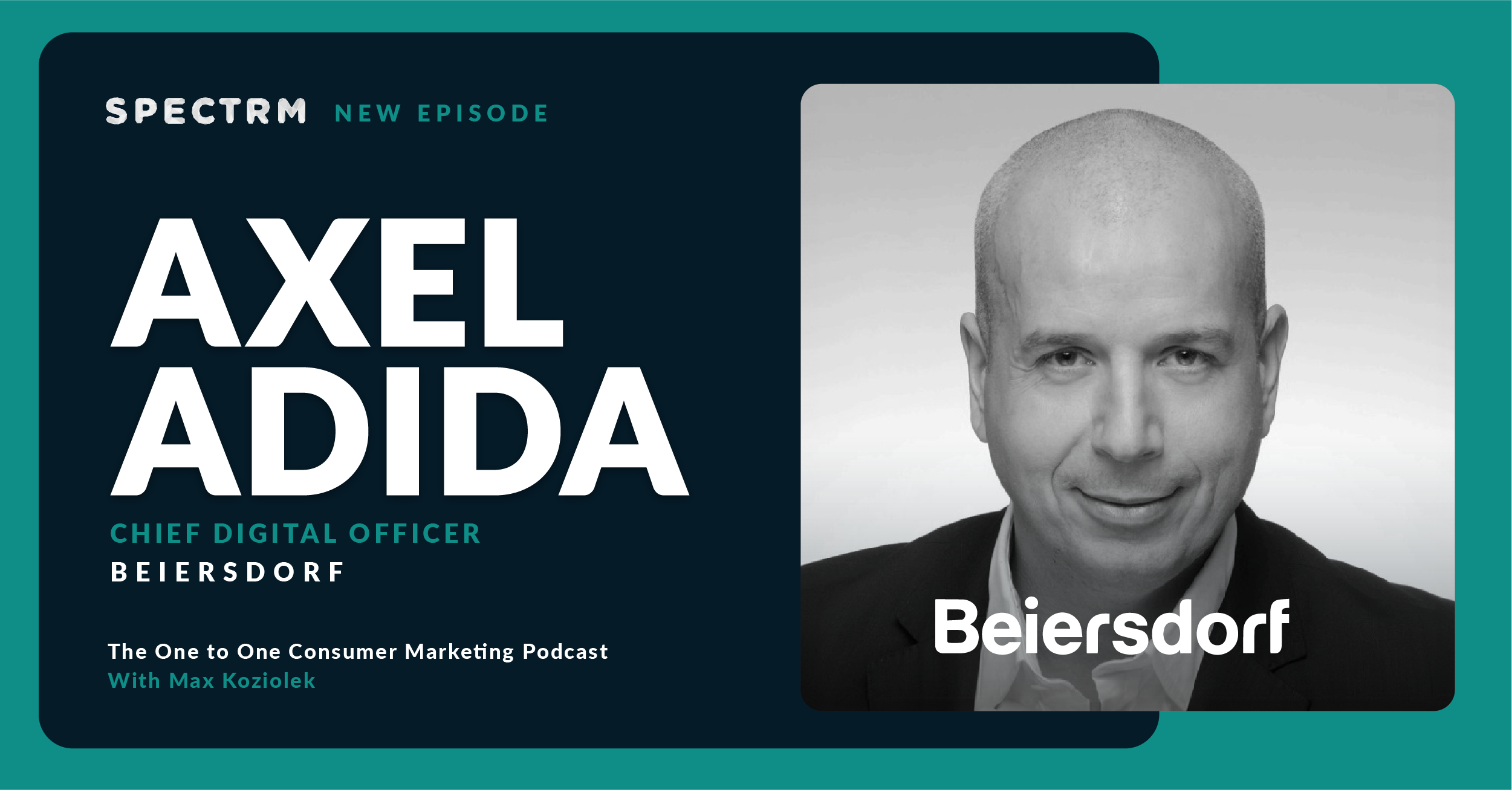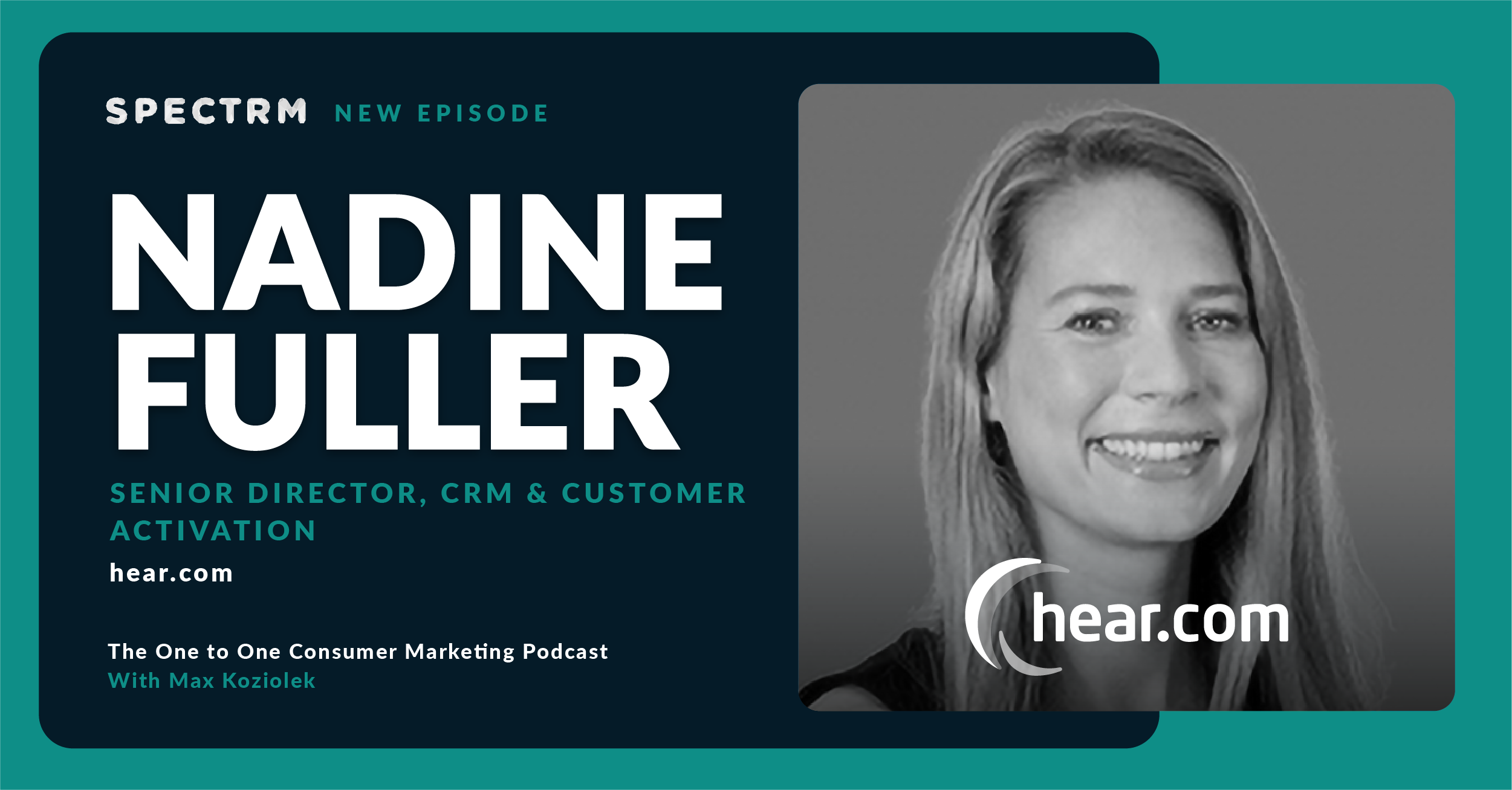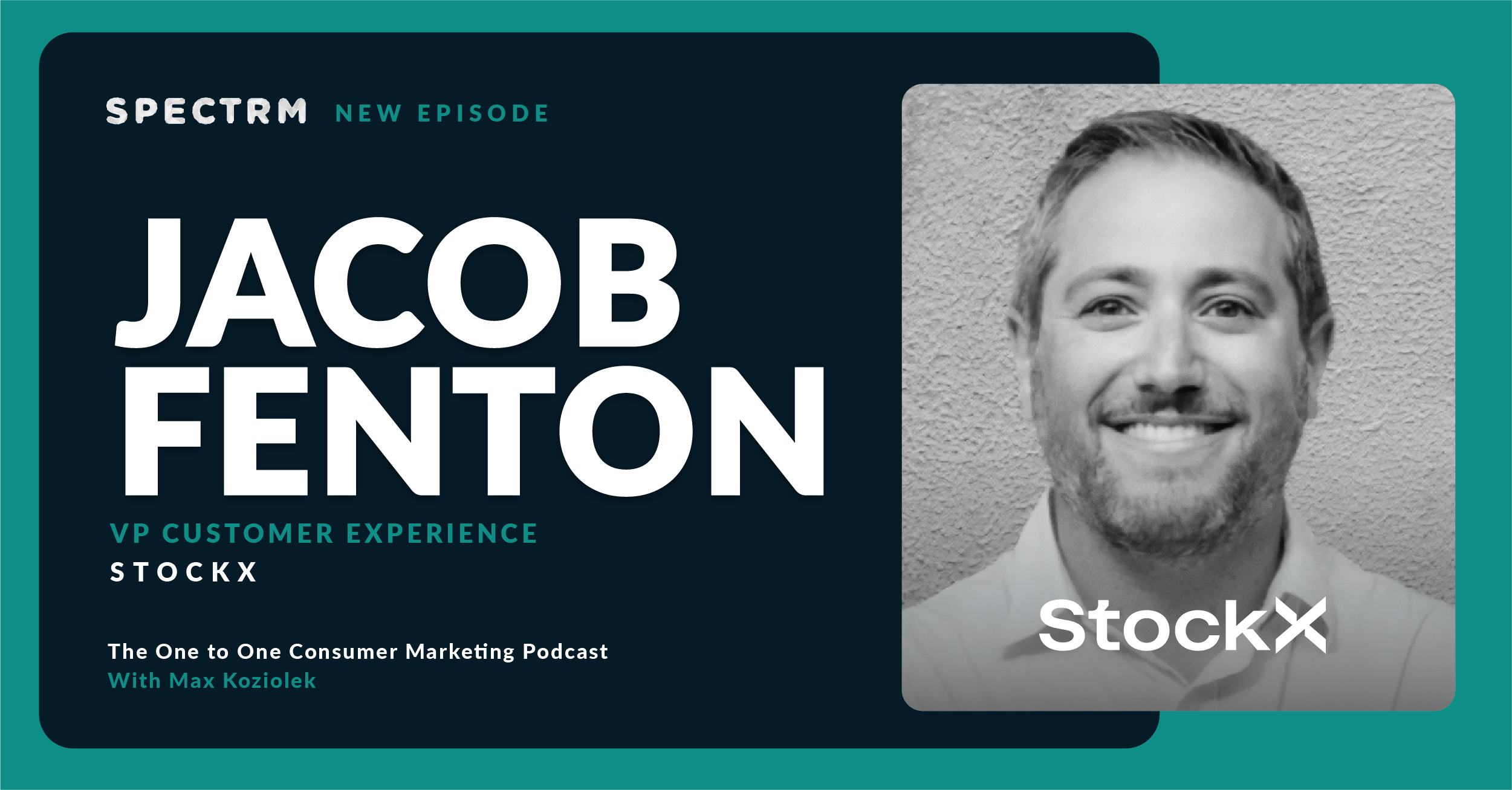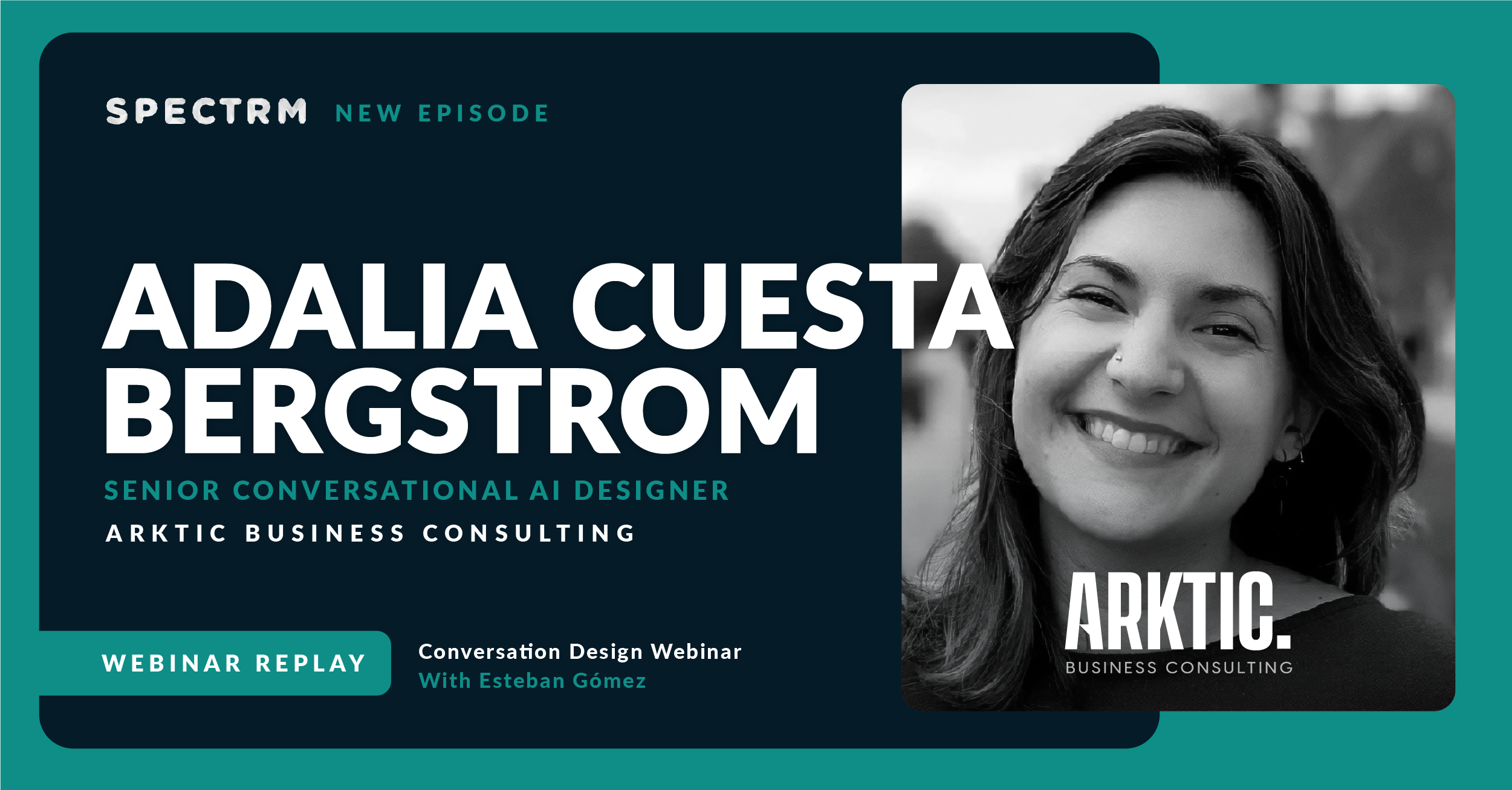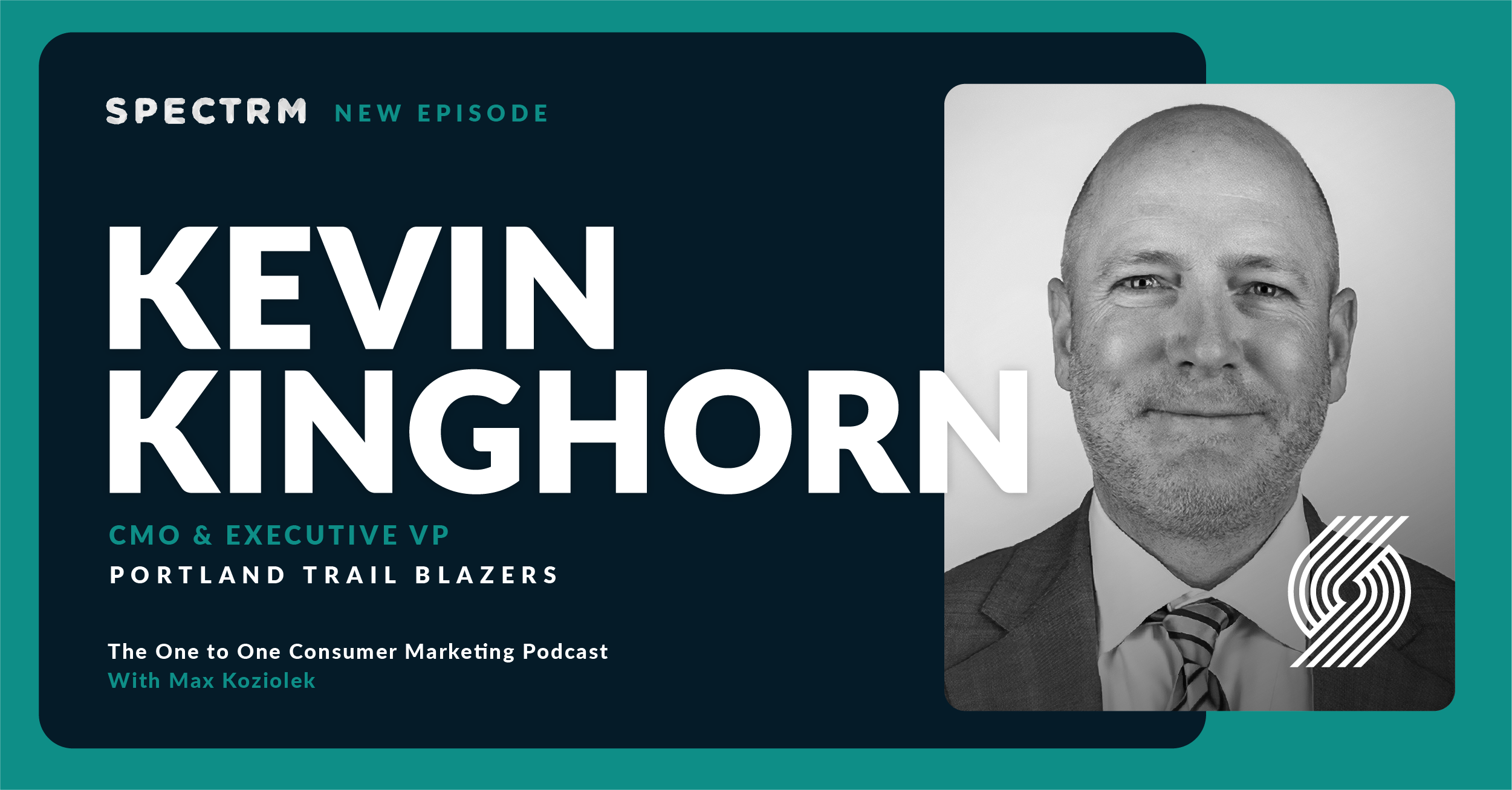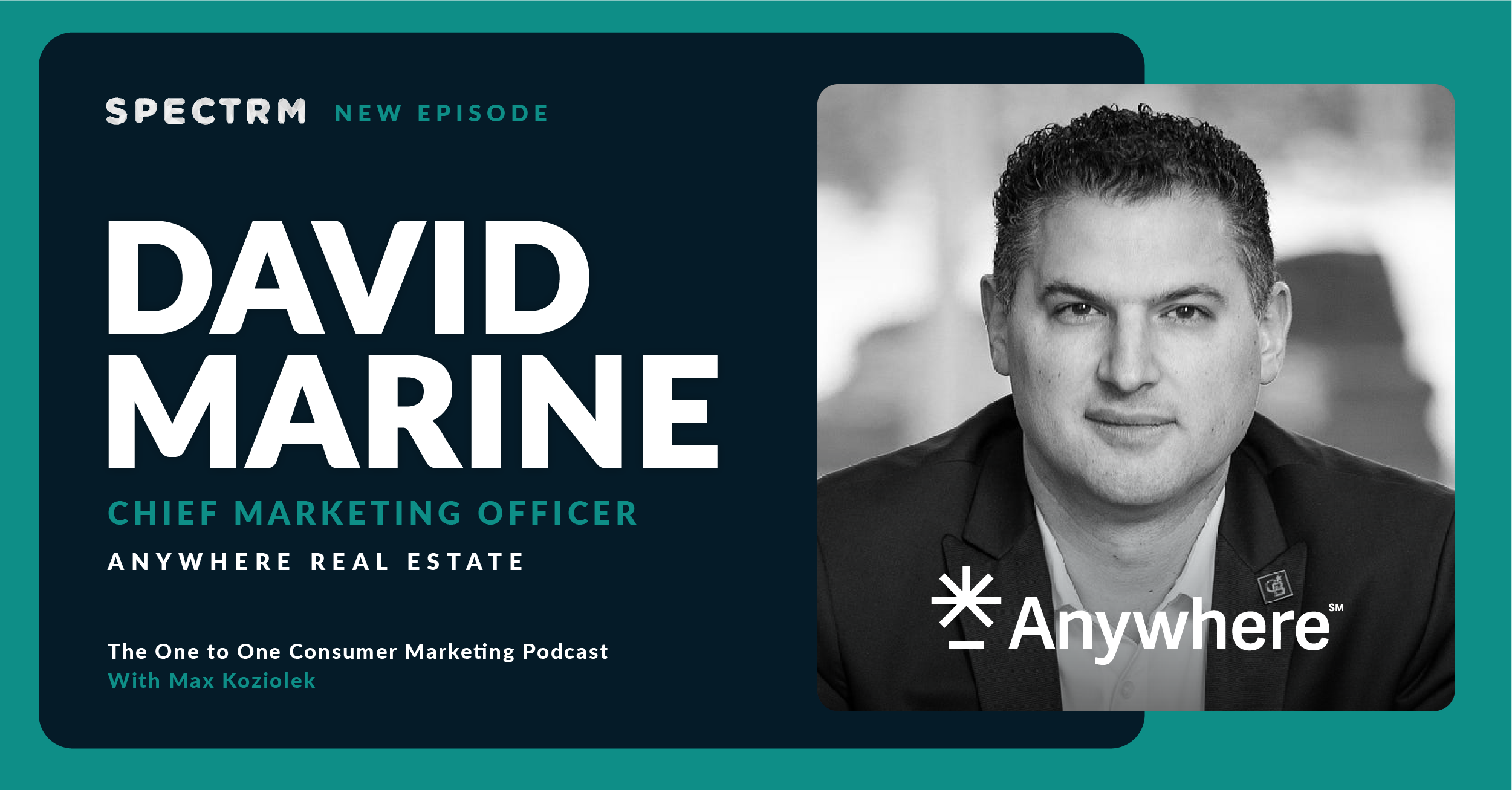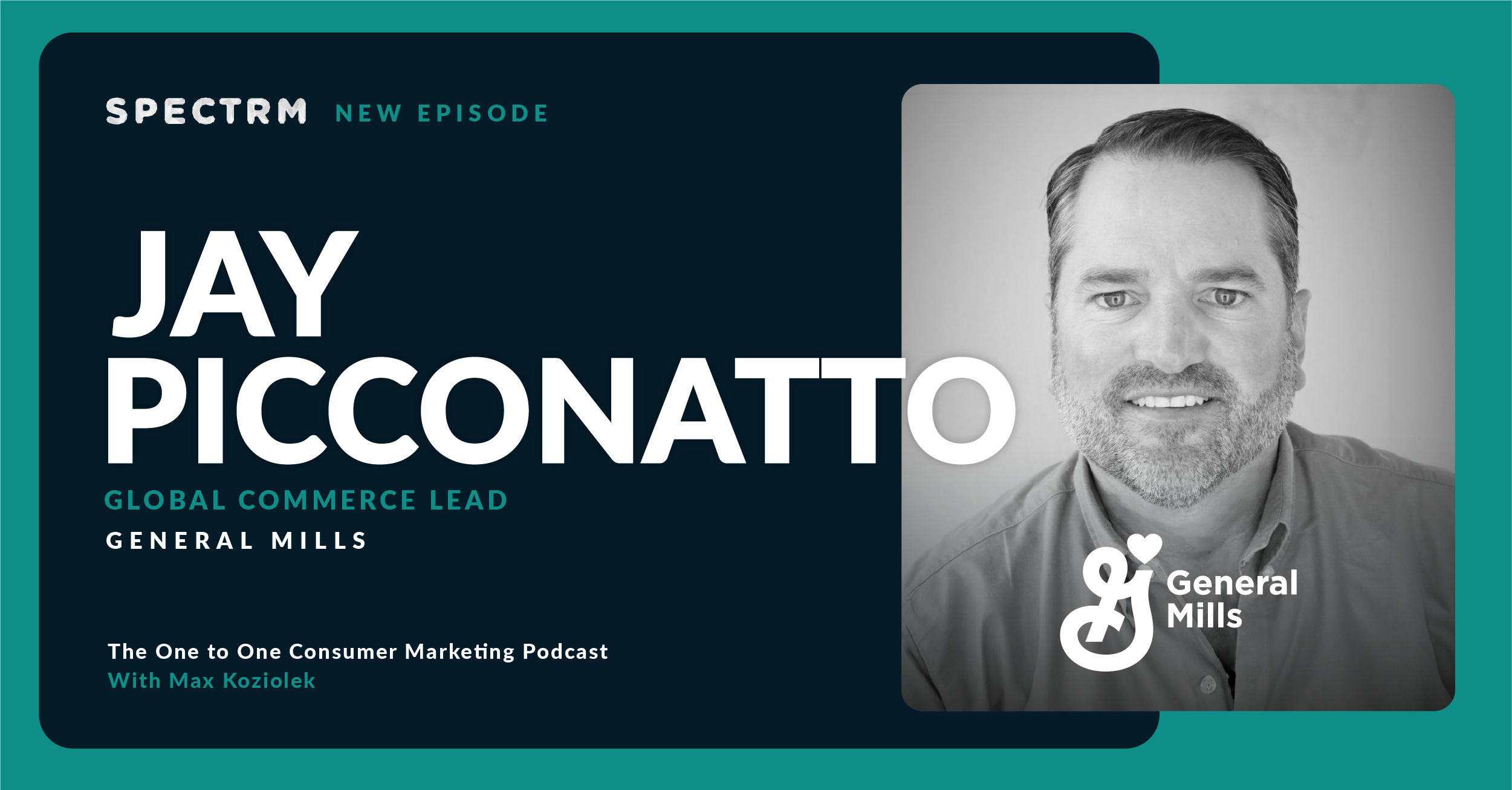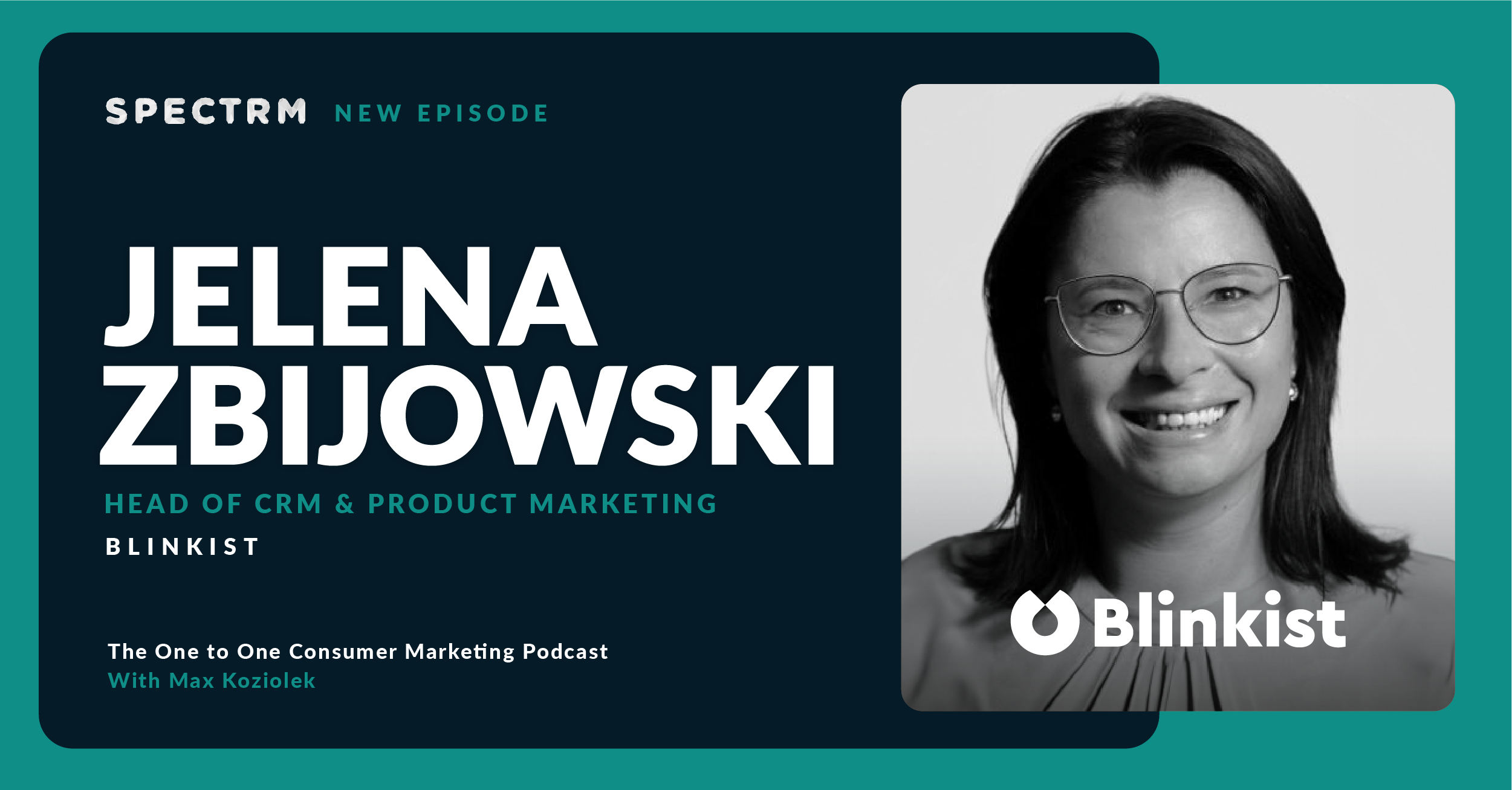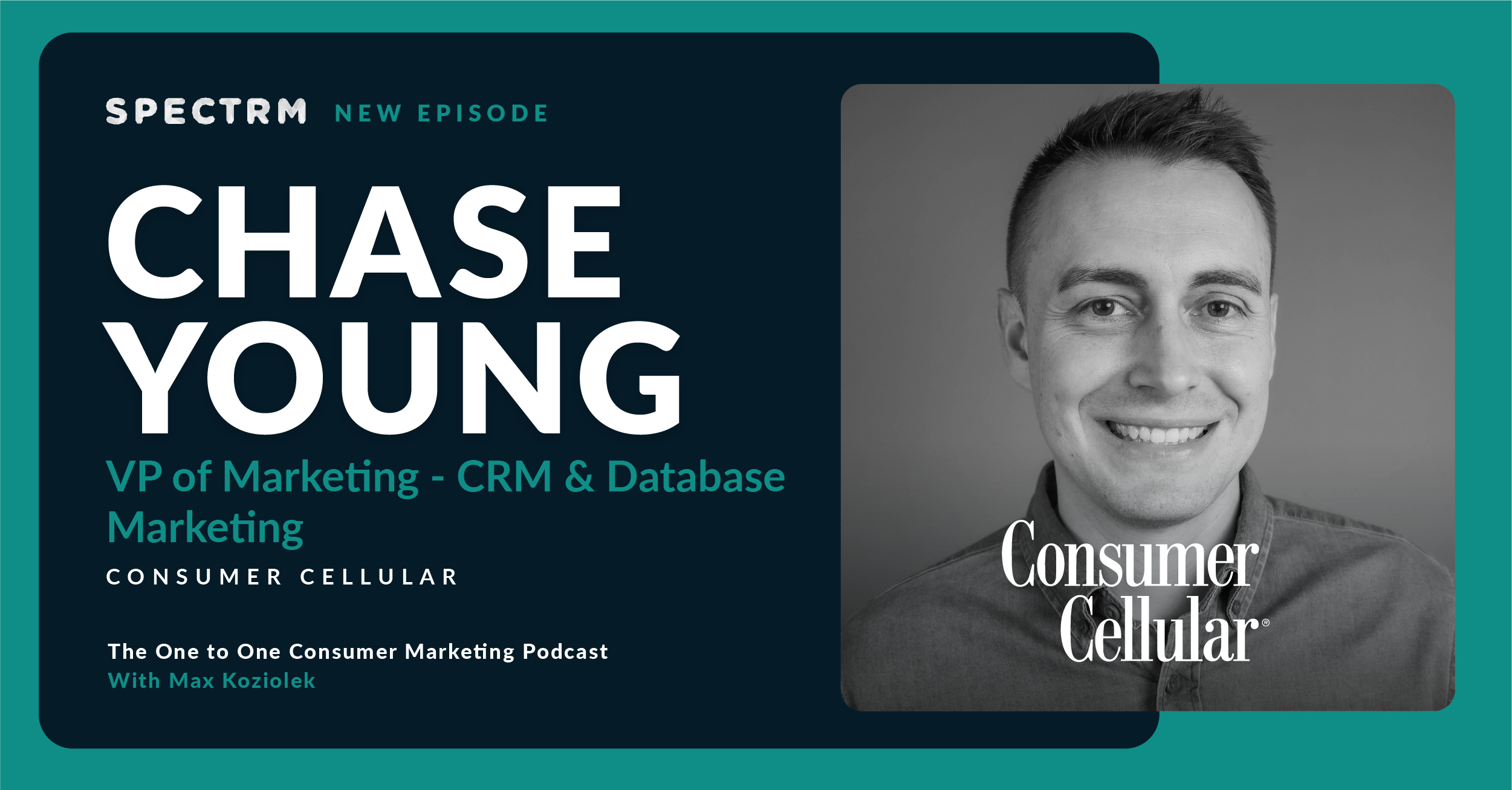Summary
Ben speaks with Amanda Long, Director of Retail Marketing at francesca’s, a fashion boutique retailer. They discuss the current state of consumer marketing, including how to use your channels more efficiently, how data and privacy regulations can be an opportunity to learn more about the customer, why predictive modeling is an exciting new trend, and the importance of having retention and lifecycle marketing strategies in place. They also discuss how Amanda first got into marketing by tagging along with her grandmother to wholesale events, advice for marketers just starting out in the business, and the importance of having fun.
Topics discussed
- The evolution of Amanda’s career, from tagging along with her grandmother to wholesale events and watching her bring in new customers, to becoming a rep in high school and driving her own business, to her agency work where she discovered a love for CRM, to her current role as Director of Retail Marketing at francesca’s.
- The state of consumer marketing today, and why increasing privacy and data laws are simply an opportunity to navigate in order to get to know the customer better.
- The importance of retention and lifecycle marketing, and how businesses are leaving money on the table if they don’t prioritize those strategies.
- The challenge to effective CRM, including using available channels like paid and email as efficiently as you can, and not duplicating efforts.
- How Amanda has focused on increasing personalization at francesca’s, including revamping the loyalty program and increasing recognition on the website.
- Why predictive modeling is a trend that CRM marketers should be excited about and that can help with personalization efforts.
- Advice for marketers that includes knowing what your goals are, not letting perfection get in the way of shipping a good product, listening to your customers, and having fun!
Don't let perfection get in the way of good. That was probably the best advice I've ever gotten in my career. Get a good product, get something good to market. Don't hold something back. You can always optimize. You can always tweak it down the line. But get something good to market and test and learn. Again, a key piece of that is the testing and making sure that you're really honing in on what those goals are and optimizing along the way.
Guest biography

Passionate, results-driven, and analytical leader with 10+ years of experience managing and optimizing CRM acquisition and retention omnichannel strategies (email, SMS, direct mail, paid, POS).
Specializes in delivering 1:1 personalized and relevant content at scale in digital space by listening to the customer through data. Also, highly skilled at improving processes & minimizing costs and time losses.
Company overview
Known for offering unique, free-spirited fashion, jewelry and lifestyle products for over 20 years, francesca’s mission is to inspire discovery and celebrate individuality. Our brand purpose #FreeToBeYOU starts with our customer. By creating a space to amplify the voices of everyone seeking self-expression we hope to play a small part in uniting the world around the power of originality.
Industry: retail | www.francescas.com
Subscribe to the podcast newsletter
Transcript
00:00
Speaker 1
Don’t let perfection get in the way of good. I think that was probably the best advice I’ve ever gotten in my career. Get a good product. Get something good to market. Don’t hold something back. You can always optimize. You can always tweak it down the line. Get something good to market and test and learn. Again, a key piece of that right is the testing. Again, ties back to number one, making sure that you’re really honing in on what those goals are and optimizing along the way. You.
00:30
Ben Gibert
Hey, everyone, and thanks for listening to and watching the one to one consumer marketing podcast. Today I’m speaking with Amanda Long, who is director of retail marketing at Francesca’s, a specialty retailer of clothing, jewelry, and accessories. Amanda, thanks so much for coming on the podcast today.
00:47
Amanda Long
Yeah, no, thank you for having me. I’m super excited to be here.
00:49
Ben Gibert
Yeah, I’m really looking forward to our conversation. Before we get started, can you tell our listeners more about yourself, your background, and how you ended up at your current role at Francesco’s?
01:00
Amanda Long
Yeah, absolutely. I may take it back too far, so feel free to tell me to speed it up if I need to, but I think I really probably kind of fell in love with the marketing space probably a little earlier than most. I used to travel with my grandmother, who was a businesswoman to her core, and she was a wholesale rep. This is retirement period for her, but she was a wholesale rep for a company and traveled to different markets. And so she brought me along. She was like, hey, you can come and help me. I fell in love with the aspect of setting up at these wholesale events and bringing along materials to really market and prospect and bring new customers in and driving the business that she was a rep for. I actually ended up becoming a rep myself. I want to say this was all probably around, like, late middle school, early high school time frame.
01:49
Amanda Long
Once I could officially become a rep myself and kind of drive my own business, I did. Here I am in high school, sending out emails, sending out direct mail to customers, trying to get them to make a second purchase, a third purchase, or just restock if they’ve been an ongoing customer. So, yeah, I mean, looking back, it probably wasn’t the most efficient business model on my part, which I learned as I got further into kind of my education. I wanted to learn more about how to run a profitable business. That’s what I ended up going to school for. Went to University of North Texas. For anybody else out there that’s listening, and it was probably about my junior year in college, where I actually ended up getting hired at an agency. It was an international beauty retailer, and I actually ended up managing a lot of their POS and cap window like print materials and eventually found myself actually running their direct mail program.
02:45
Amanda Long
It was kind of at that point where I got to see firsthand really what I should have been doing as a marketer and got to oversee kind of four different segments that they were going after at the time. A circular that they kind of sent to their professional side of the business that really just kind of showed everything that they housed and could potentially sell. During my time there, I actually got a taste of a digital campaign that came through and I was like, oh, what’s this? I want to learn more about this space. Ultimately I ended up didn’t get the chance of the agency I was at, but made the career move and the decision to take a step back and moved over to an arts and crafts retailer where I was really doing a lot of project management. I was getting the opportunity to sit down with channel owners, whether that be in the email space, whether that be in paid advertising, whether it was just the ecommerce side of the business, right?
03:42
Amanda Long
Like what are they placing on the homepage, why are they placing it? And got to learn the lingo. I ultimately ended up moving around within that company and ended up finding out that really the CRM space is where I wanted to be. I mentored, I shadowed, I did whatever I had to, begged people to give me any tidbit, any information that I could potentially have ever asked for and I was really lucky. I had quite a few good mentors within that company and ended up landing in the CRM space. I think really kind of the reason that I landed there, I found out that I loved it was because it was a conversation. You were listening to the customer looking at the data while you weren’t sitting down across the table from every customer. You were able to dig in and really segment out customers and understand who were the loyal customers, what drove them, if customers were disengaging, why.
04:37
Amanda Long
I loved the idea of being able to have a hand in that and an impact. I stuck with that and eventually we got a really nice foundation in place and ultimately started to move into the personalization and really scaling personalization placing I guess, or making sure all of our data was in our CDP on customers and hooking that up to the different tools that were leveraging. We got to the point though, where were basically able to send out one email template and Ben, if you opened it was going to look very different from what I was opening and ultimately kind of grew that outside of even own channels, but also into the paid space as were targeting customers or retargeting customers. Yeah, I mean, that was a great experience. I got to the point where I was ready to kind of grow in my career and Francesca’s actually reached out.
05:26
Amanda Long
It’s now almost been a year that I’ve been at Francesca’s. At the end of this month, it’ll be a year exactly. Francesca’s, for those who don’t know, is a fashion boutique retailer that’s best known for our collection of clothing, accessories and jewelry. And some also may not know. We actually probably right before the time I joined, we launched a program or a sister brand called Frankie, which is actually targeting younger girls, so 17 to 14, whereas kind of the Fram brand is more of that, like 18 to 35 bucket. It’s been a great company, a great experience so far, and I think there’s a lot of opportunity here, which is one of the reasons I actually decided to join. Yeah, I think it’s just super exciting to see kind of the growth or the opportunity that the company has.
06:12
Ben Gibert
Yeah. Thank you so much for the overview. I think we’re going to get into topics around CRM in particular and retail marketing, how you see the space and how it’s evolved during your career. I love the background story, particularly with your grandmother. Not everybody has that. From the very beginning, I think a lot of marketers fall into marketing. They’re creative. Some go to school for marketing, some do other things, and then they start marketing either on the agency side or the brand side. It is nice to see that you really have that personal story that’s driven your interest. I’m sure there were a lot of good times with your grandmother on those trips together as well. That helps you bond together.
06:53
Amanda Long
Yeah, definitely. Special memories there.
06:56
Ben Gibert
I believe it in terms of you mentioned starting, you were doing direct mail, you got into CRM, you mentored with a bunch of people. You really wanted to build your kind of competency there. I’m sure you’ve also seen the state of consumer marketing change a lot. Can you speak to that ? How do you see consumer marketing today?
07:18
Amanda Long
Yeah, I think it’s really interesting. Kind of the journey, right. Like, coming in where data purchasing data, you didn’t think twice about it. Right. It was there for the taking, I think especially in the last few years. Right. Like, run into things like iOS and privacy law changes. Right. I think it shifted the view of consumer marketing. Let me take a step back soon and say, like, when it first rolled out, I think I had it. Oh, my gosh. What? I’m not going to be able to easily identify customers, know who’s opening my emails, things of that nature. I think as we kind of got more information on it wasn’t quite as scary. I do still think some have probably a harsher outlook on consumer marketing than probably should, but really, I think it challenged us as marketers to maybe double click where we hadn’t been doing those deep dives before.
08:11
Amanda Long
Yeah, I would say I feel like overall, consumer marketing is still really kind of what it was years ago. There’s just new rules in place, right. We’re having to find out how to navigate through those. I will tell you, I think, obviously, as a consumer myself, Ben, I know you’re one too, but I think it’s the right move to do and have these rules and laws in place. I think it’s just another and again, kind of what I talked about before when I was giving an intro. I think it’s another data point, right? Like, it’s another conversational piece that you’re getting to have with the customer and really kind of figure out how to intertwine that in the journey that you’re taking them on.
08:47
Ben Gibert
Yeah, I agree. I think it doesn’t fundamentally change marketing. Obviously, privacy is a concern, but the measurement piece can be a concern, like you said, with not being able to track open rates for emails. At the end of the day, good marketing is good marketing, and it’s about connecting with people at the right moment in their journey. You can do that without that data. It obviously helps to have it, and there are new ways to engage people, to build those relationships on new channels. Like you said, it evolves, it’s in flux. You sound also optimistic about it, which is great. I think we need to stay optimistic as marketers. Not everything is doom and gloom, even when we’re losing the data.
09:29
Amanda Long
Yeah. Again, even still, while maybe, I don’t know specific open rates for Apple, I think kind of that double click I was talking about, too, right, where you break out operating systems, you go back and look at the customers that aren’t on iOS. What are their open rates? Are they comparable to where they were this time last year? Are they comparable to, like, a 30 day window? I think there’s still measurements that you can do and definitely still get a glean of was your campaign successful?
09:56
Ben Gibert
Yeah. Probably even getting deeper into the funnel. Seeing, like, are you still seeing purchases coming from those segments, from those operating systems as well? Will give you a sense of that. We’ve touched at the high level of on consumer marketing. When you think about retention and lifecycle marketing generally, how do you think about it at Francesca’s?
10:17
Amanda Long
So that’s kind of my sweet spot. I feel like that’s probably the I’m much stronger at that I actually have partners here at Francesca that kind of see the higher funnel side of things, really driving those prospects in. My team and I are responsible for making sure that we are capturing as much zero and first party data as possible. I would say I think in terms of retargeting, whether it’s in the owned or the paid space, it’s still doable. Even with some of these impacts that have happened. I definitely 100% would say retention marketing is a must have. I think if you’re not doing that today, that is a huge miss, huge opportunity. You’re leaving money on the table, quite frankly. You have to make sure you’re staying top of mind with your customer and doing simple things like sending a post purchase trigger or retargeting customer after their first purchase are key things that have to be done.
11:11
Amanda Long
I would also say even looking further out, making sure that whatever your business’s purchase kind of time window is, making sure that you’ve got things like reengagement triggers in place and then even further out winbacks right. Like making sure you’re doing all of those kind of, again, like key principal marketing things to ensure that you’re keeping your customer in the funnel.
11:32
Ben Gibert
Yeah. You touched on zero and first party data. Can you talk to that ? How are you capturing that data and how do you use it?
11:40
Amanda Long
Yeah, absolutely. We are as my partners that I’m working side by side with every single day as they’re pushing prospects to the site. We have pop ups in place to capture customer email and phone number for SMS. I would say that is the primary way that we’re seeing a lot of customers added to the file from like a digital side of things. In store, we’re also prompting customers to provide us with email and phone number to sign up for our loyalty program that we have running. Again, I think those are key things that you want to make sure your business is doing to have some kind of Identifier on your customer as they are coming in and making purchases or even just coming back to browse the site so that you’re continuing to just really build a profile on those customers.
12:26
Ben Gibert
Yeah. Can you talk about that profile so you have the Identifier to identify a unique customer? How are you building up their profile? Is it transactional data? Are there other ways that you engage them to understand who they are? Can you walk through some examples?
12:41
Amanda Long
Yeah, absolutely. It’s a mix of both to answer your question. Short form answer your question, but long form. Yes. I think having a mix of both historical transactional data as well as looking at behavior of what is happening on the site, what is that last thing that the customer looked at? Maybe historically, again, just an example here, but maybe historically customer A has only purchased dresses and nothing but dresses. Yesterday she came to the site and she started browsing tops or she started browsing shoes. The next communication to her probably shouldn’t lead with dresses. It should lead with what that last action was. What was the last thing that she was looking at. I think that is, again, a key piece of just that conversation and making sure that you’re listening to the data points and really understanding what the customer is interested in at any given point of time.
13:32
Ben Gibert
Okay, so it sounds like you very clearly believe that retention is kind of table stakes for any ecommerce business. I would totally agree with you. Obviously, it’s one of the most efficient places to be doing marketing and to get more from your existing customers. Have you seen that shift at Francesca’s? I know you said you’ve been there a year, but have you seen more attention being paid to marketing and retention in particular? What does that look like within the company strategy?
13:59
Amanda Long
Yeah, no, absolutely. I think for me, coming in, that was one of the things that I honed in on, and I can proudly say that from my time joining to just kind of rounding out the end of our fiscal year, that were able to see an improvement in retention compared to 2021. I think, yes, it absolutely is an area of passion and focus for me. I think putting some of those just key foundation retargeting messages in place have really moved the needle for our business and ensuring that we’re keeping those customers that we brought into our main audience file.
14:34
Ben Gibert
What are you looking at when you talk about moving the needle? What are the KPIs that you’re measuring to really understand if that needle is moving?
14:40
Amanda Long
Yeah, I think it’s coming back, right? Like, are they coming back and making another transaction? We tend to look at a twelve month window to make sure that the customer is active, but are they coming back and are they making another purchase or are you seeing them fall off the file? So, yeah, no, we have seen positive results from it and I would say it’s only going to continue to grow in terms of the focus that we’re giving retention marketing.
15:01
Ben Gibert
Yeah, that’s great to hear. I mean, I think it’s always nice when you see results from your efforts. People have different ways of measuring it. I think repeat purchase rate and kind of retention is a key one. There obviously there’s a lot of challenges that come into the ops of actually doing retention marketing. Can you talk me through the challenges that you’re seeing right now in retention and loyalty?
15:21
Amanda Long
Yeah, I feel like the biggest thing that kind of ran into or that I honed in on as I was coming in, was making sure that were using all of our channels as efficiently as possible, that all of the channels were talking to each other. Right. That you don’t have a paid channel that’s potentially going after a customer that’s on your email file, then you can use those dollars elsewhere more efficiently in your paid channel and kind of let the email have its window of time to try to reactivate or drive that customer back in. After a certain window, whatever time you’ve designated that in, if you don’t see the needle moved at that point, then I think maybe you start to bring in kind of the reinforcements through paid. I would say I feel like that’s probably been our biggest battle is just ensuring that we’re being as efficiently as possible.
16:03
Amanda Long
That was a huge goal coming in during my time last year and it.
16:07
Ben Gibert
Was that challenge really almost connecting all the dots to understand where things are happening and whether it’s driving a purchase here and kind of orchestrating that whole journey or what part of that was particularly challenging.
16:22
Amanda Long
Yeah, I would say orchestrating it right. I would say just making sure that you’re feeding the right data to your Paid partner so that they’re suppressing the correct audience during the given window of time and then once that given window of time is up, ensuring that they’re turning on the switch to then kind of go after those customers. I think it was just kind of laying the foundation to set us up with a nice base so that we can continue to build on that.
16:45
Ben Gibert
And you mentioned channels a bit before. You mentioned also kind of not being able to track open rates in emails. Obviously that’s challenging, but what channels are you seeing work best right now and which ones are you seeing kind of declining performance on?
16:59
Amanda Long
So I would say working best. Interestingly enough, I would say our Direct, which is highly correlated with Paid efforts, but our Direct traffic coming to the site is a big one for us. I would say though, that’s also heavily tied to some of even the affiliate marketing that we’ve done. Affiliate marketing has been a big win for us in the paid space, having those partners kind of place our ads where it makes sense and driving qualified traffic to our site. I would say in kind of the paid space, that’s been a good do for us. I would say on the own side of the house, it’s definitely email SMS which is again kind of more where my area of focus is at. Yeah, I think for some of the channels that we potentially haven’t necessarily seen be as strong for us, I wouldn’t say they’re not working, I think it’s just a cost of doing business would be paid social.
17:52
Ben Gibert
Yeah, that’s interesting. Obviously email SMS closer to further down the funnel like they’re on your list. You can engage them more from a traditional retention, marketing and loyalty perspective. You’re seeing paid social in general is a struggle right now.
18:07
Amanda Long
Again, I don’t know if it’s a struggle, I just don’t think it’s as maybe as profitable as some of the other things that we’re seeing. Again, like I said, I also think it’s an awareness play, trying to stay top of mind for the customer. So, yeah, I mean, much higher funnel tactic, whereas some of the other ones I’ve mentioned, if a customer is coming direct to the site, they probably have a greater intent to make a purchase and obviously email SMS, probably a little more engaged customer anyway, further down funnel. So, yeah, I mean, I would say again, I don’t know necessarily not working just in terms of return on investment, cost of doing business. I think you have to sometimes there’s going to be one channel right, that has to do it. I think that it does a nice job of really helping build the brand awareness and just staying top of mind.
18:50
Amanda Long
Yeah. Does that help answer the question?
18:52
Ben Gibert
It does, yeah, it does. I think it gives a sense also of the incrementality of each channel and how far away from the purchase journey it is. How you think about that? Thinking about maybe the broader customer journey. What are you doing to connect one to one with your current and potential customers? Right. I think everyone in the space right now is talking about personalization, that’s difficult loyalty. There’s a lot of personalization that goes into creating a loyal relationship between a customer and a brand. Can you talk us through that ?
19:23
Amanda Long
Yeah, absolutely. I mean, I’ll tell you, this is a roadmap for us too, right? I’ve been at Francesca’s now a year, got to build the foundation and then you start to grow from there. I would say some of the low hanging fruit. I know I’ve already mentioned this once, but for but I think I walked into Francesca’s where they already had a loyalty program in place. Customers weren’t necessarily getting anything, maybe an occasionally one here or there. One of my first goals was actually revamping that, coming in with the team that was here and that had stood up, quite frankly, the first round of it. I think revamping that, having a reason for the customer to engage, to sign up, to provide some of their information to help us identify them. I would also say that increasing just recognition on the site as well, doing simple things like passing encrypted params so that, when a customer is clicking in your email, who they are when they’re hitting your site, you can even do that from your SMS channel as well.
20:19
Amanda Long
I think that only continues. Again, just to help going back to what were talking about before, build the profile on the customer so that who they are, what they were looking at, on top of kind of that transactional history that is heavily tied to the loyalty side of things.
20:35
Ben Gibert
Yeah, very interesting. Do you use that data, like once you’ve connected? Okay, this browser session is coming from this identified customer. That feeding back into CRM and kind of affecting what you’re putting back into the next email and that thing.
20:48
Amanda Long
Yes, you’re spot on. It’s helping add further information to what the customer is interested in, what’s relevant to them at that point in time. So, yeah, it feeds back in and then helps us make educated decisions on what they should see next. That’s even built into communications after first purchase or in their abandonments, things of that nature so that we make sure we’re kind of layering in the right logic there on what to show the customer. I think another thing in terms of helping just personalize for our customer base is also like a mix of, I guess the content, right? Like what you’re putting in front of the customer. A mix of brand, product and then language. How are you talking to your customer? Well, maybe it’s not necessarily at a one to one level for us right now. I think honing in and understanding who your segments are and how you can talk to each one of them.
21:44
Amanda Long
I think a good example of that is there is a segment that we have that all they really care about is promotion. If you don’t talk to them in a promotional manner, you’re going to see really low engagement in whatever communication you’re putting in front of them. I think that is also kind of another layer of it. Yeah, finally, I also think we’ve touched on this in terms of you asking the question of are we feeding that back in to then kind of utilize it within CRM. I think ease of access to your data as well. We do have a CDP. I’ve had CDPs in, I think, pretty much all of my past roles as well. I think ease of just kind of housing that data all together in one place and having kind of a key central point where you can feed APIs or feed some form of a data feed to whatever tools, marketing tools that you’re using to speak to your customers.
22:34
Amanda Long
I think that’s also something, if you can swing it, something that I would recommend definitely investing in.
22:41
Ben Gibert
Yeah, I agree. I think if you don’t have a unified view of your customer, like you said, and then also a place to store all the data around them, it definitely makes that personalization piece very difficult. I know that’s a major you can talk about all the orchestration and personalization challenges after that, but getting that data in check is definitely a first step. That’s very important. Thank you so much for the overview of kind of your current role at Francesca and how you’re dealing with personalization. Looking forward a little bit. What is an exciting consumer marketing piece of technology or like a trend or a behavior that you’re excited about?
23:20
Amanda Long
I guess I go more probably the trend route. I think I would say it’s just focus on data where I know it’s kind of a double edged sword, right? Like, it’s bad and good, but I mean, I would say definitely the focus there and then focused on probably more predictive modeling. I think that’s super exciting. I haven’t seen a lot of retailers kind of, like, picking up and really honing in on predictive modeling. I’ve only heard of a handful. I think it’s starting to become something that’s more widely used. I want to say it’s typically coming from vendors. It’s something that vendors are kind of, like, plugging in and encouraging brands to do, especially in the retail space. I think if you took a step back a few years ago, unless you were at some just, like, huge conglomerate, there probably wasn’t something that was really even talked about.
24:07
Amanda Long
I know I was able in my past role to do some Dabbling and predictive modeling with some of my partners, and it blew my mind. I was like, this is the coolest thing I’ve ever seen. I could totally geek out over this for hours. I think that’s probably I would say something that I’m just really interested in and trying to kind of follow and stay on top of. Also something I’m trying to challenge the team here right. And my partners here. As we’re looking again at our roadmap and kind of ongoing of how do we start to layer in some of that predictability so that we know an example, I guess, what customer needs, what discount at what time to get them up and off the couch and into our store? Do you need to give a discount to every customer? No, probably not. I think that’s just something that’s kind of cutting edge and something I’m excited about.
24:54
Ben Gibert
Yeah, I think that is a very exciting space. You’re not the first person on the podcast to also mention it. I think it’s something that a lot of CRM marketers are excited about, is this idea of because CRM is inherently a complex thing with a lot of triggers, a lot of potential journeys, a lot of channels. You could do that on this idea of not using just predictive modeling to identify, okay, what offer, what person, but maybe what channel, what moment. There’s so many layers of that. I think it’s a very exciting space to be in.
25:24
Amanda Long
Yeah, no, absolutely.
25:26
Ben Gibert
In terms of you have been in the space, what are kind of three pieces of advice you have for other marketers? What do you wish you knew at the start of your career that now? What would you tell Amanda when she’s in high school, fresh off the back of a bunch of trips with grandma? What would you tell young Amanda there?
25:44
Amanda Long
Yes, I can definitely answer those questions. I would say what your goals are. I think, number one, know what your goals are. Know how you’re going to measure those goals. I think a lot of times, us being. In the retail space. I think we’re moving a million miles an hour, and it’s just like, I got to get this done and get it into market and get it done now. I think challenge yourself to really outline what the goals are, what your KPIs are going to be, and make sure that you’re referencing those. Whether your campaign is something that’s lasting three days or it’s something that’s lasting three months, just to make sure that you’re ticking and tying and really going back to what you said you were trying to achieve, I think that would be number one. I think number two. This is something actually, a mentor told me I’m of a perfectionist, but I was told, don’t let perfection get in the way of good.
26:33
Amanda Long
I think that was probably the best advice I’ve ever gotten in my career. Get a good product, get something good to market. Don’t hold something back. You can always optimize. You can always tweak it down the line. Get something good to market and test and learn. Again, a key piece of that right is the testing, and again, ties back to number one, making sure that you’re really honing in on what those goals are and optimizing along the way. I also would say, I think, making sure that you are listening to your customer. I know it’s kind of been like a theme throughout what I’ve shared, but leveraging data or social sentiment? Luckily, I’m fortunate. Here at Francesca’s, we have a tool where we’re able to kind of pull together social sentiment an aggregated level or just kind of high level and understand what’s going on.
27:16
Amanda Long
What are customers saying? What are the pain points? What are the good things? I think making sure that kind of where your customers head is at and lean into that. Right. Know where you need to tweak what you need to optimize and where you’re winning so that you can just continue to lean into that. And then I do have a bonus. I know you said top three, but I feel like the other thing too. Again, I think as retail marketers, we’re moving a million miles an hour, but I think also making sure that you’re having fun. I think if you’re not having fun, if you’re not kind of taking a moment to step back, laugh at maybe some of the painful moments, I think that can sometimes come through in marketing. I think if there’s a mess up, bring of humanity into it, drop that moment to show customers that your brand is a living, breathing thing and there are humans kind of behind the logo.
28:06
Amanda Long
Right? I think that’s something else that I try to remind myself and also ask my team to also hold me accountable if we’re going through something. I think those are probably the things I would say.
28:17
Ben Gibert
Yeah, I like that. The clear goals is so key. Shipping fast, not being so precious about everything is another one that I’ve definitely learned to do that. I’ll skip straight to the bonus question because I love that you put a bonus round in there. I think that is so true. Right. We have this idea as marketers that a brand should be this perfect thing, should be this entity that is separate from the people that build the brand. People connect with people and it’s very kind of you build that connection. You build a relationship with people when they feel like there are other people on the other side of that brand as well. I think that’s a very powerful way to connect with people and also to build a team, like you said, right, to build a good marketing team.
29:02
Amanda Long
Yeah.
29:02
Ben Gibert
People are having fun and being creative. Like, it’s not just about the execution. That’s such a key learning that I’m sure young Amanda, younger Amanda in high school, starting on her marketing career would very much appreciate. I hope we can bottle it up and send it back, too, looking even further forward, like, five years from now. You mentioned predictive modeling, but what is the future of consumer marketing look like for you?
29:27
Amanda Long
Yeah, I wish I fully knew. I’d probably be able to be a millionaire. I definitely think that we’re going to see a lot more predictive modeling. I think there will be a lot more AI. Hopefully AI helping maybe kind of lighten the load on some of the manual things that we have to do around segmenting files or selecting audiences for key campaigns that are going out the door. I think we’ll see a lot more of that. I don’t necessarily think there’s going to be much change in terms of businesses using zero and first party data. I think if anything, we’ll continue to just kind of see that grow. But, yeah, like I said, I definitely at least fingers crossed, hopefully maybe more AI and a lot more predictive modeling to help us as marketers down the line.
30:12
Ben Gibert
Yeah, I think that’s a vision that a lot of retention marketers CRM marketers would love is can we make our jobs a little less painful and complex at times.
30:25
Amanda Long
Take that focus elsewhere, right. And continue to grow and focus on.
30:30
Ben Gibert
The kind of creative elements, the more kind of fundamental logic that underpins the system, but not necessarily the execution of all of it, day to day, which is time consuming. Amanda, thank you so much. That’s all we have time for today, but really enjoyed your insights from Francesca’s. Before that as well, if listeners want to follow your journey and connect, give you feedback on the podcast, where should they go?
30:54
Amanda Long
Yeah, you can find me on LinkedIn. Amanda Long, please open to any and all feedback.
31:02
Ben Gibert
I repeat that as well because I love getting feedback on the podcast from people. If you have feedback on this episode, anything else, do send me a DM on LinkedIn. I’m always curious, always trying to improve. Marketing is a feedback process. So is the podcast. So don’t hesitate to reach out. If you want to learn more about Spectrm and the work that we do in the conversational space, go to Spectrm.io. Or check out Spectrm on LinkedIn. Amanda, thanks so much for joining. It’s been a pleasure.
31:30
Amanda Long
Thank you. I really do appreciate the time.
31:32
Ben Gibert
Yeah, me too. To all our listeners, I hope you enjoyed the episode as much as I did, and I’ll see you next week.
31:39
Amanda Long
You our channel.
